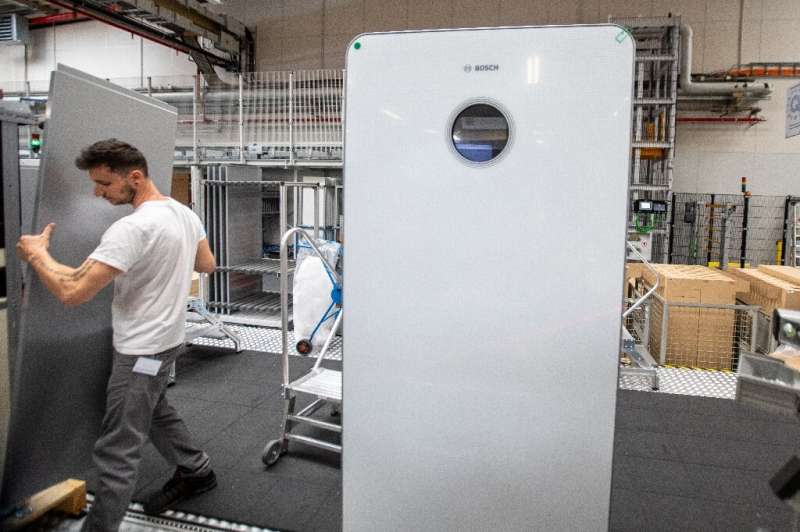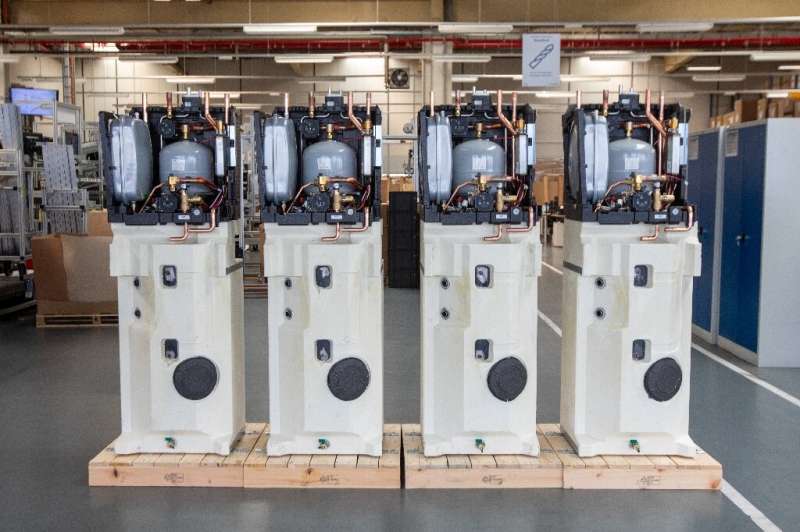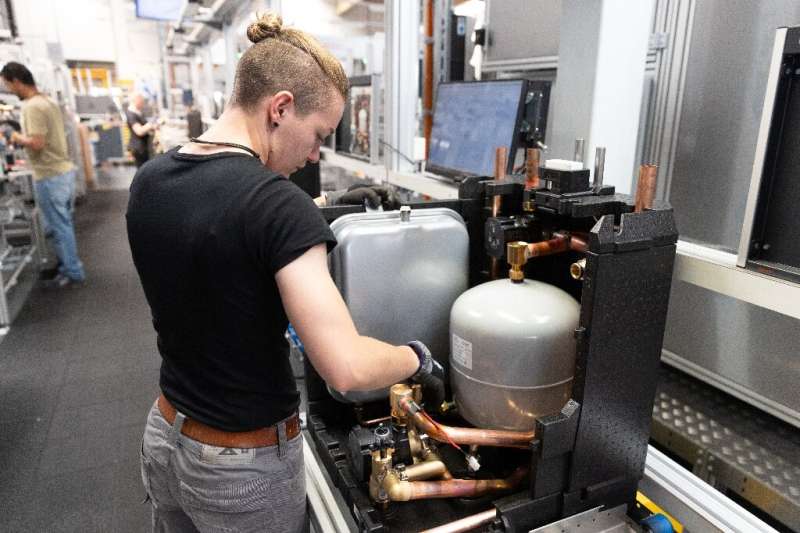Germany’s new big hope against warming—heat pumps

As Germany looks to a future without fossil fuels, a big white boxy appliance is generating a lively debate—and often a heated one—for its potential to replace emissions-heavy oil and gas boilers.
Heat pumps are spurring huge investments from major companies in Europe’s top economy, as a backlog of orders piles up for the devices.
While gas remains the most common way to heat German homes, heat pumps had been growing in popularity as part of a shift to greener energy use and following a surge in gas prices after Russia invaded Ukraine.
A new law making its way through parliament requiring heating in homes to be powered by at least 65 percent renewable energy, part of Germany’s drive to go carbon neutral by 2045, could further fuel sales of the product in coming years.
As homeowners look to reduce carbon dioxide emissions, the market for the devices has in recent years already been “growing significantly, like never before,” Jan Brockmann, CEO of the Bosch Home Comfort Group, told AFP.
“In the long term, we believe Germany could be the largest heat pump market in Europe.”
High-tech jigsaw
On the busy production line at Bosch Home Comfort Group’s plant in Eibelshausen, which traces its history as an industrial plant back over four centuries, heat pump interior units are carefully pieced together like high-tech jigsaw puzzles.
Piping is fitted into the guts of the systems, electronics are added, the equipment undergoes tests before being placed into a tall case.
In a small settlement nestled among forested hills in western Hessen state, the plant started manufacturing the equipment earlier this year, part of the Bosch subsidiary’s heat pump expansion drive.

Heat pumps work using similar technology to that found in air conditioners and fridges, extracting warmth from the ground, outside air or a water source to generate heat.
But critics say they are too expensive for most, and claim the new energy reform pushes people towards buying them, as it effectively bans traditional oil and gas boilers.
Such claims have sparked a backlash against the Green party’s push for the new laws in recent weeks.
Supporters point to large government subsidies for the devices and say the true options available for homeowners—including not just heat pumps, but cheaper hybrid systems—are not being properly communicated.
And they believe they are among the few realistic options to slash emissions from the buildings sector—which made up about 15 percent of Germany’s carbon dioxide emissions last year.
A compromise was finally reached between the Greens, who had been pushing for the rules to begin next year, and business-friendly coalition partners the Free Democrats which delays the start for most until 2028.
But in a further twist, the coalition was forced to postpone a vote on the law scheduled for Friday until September, after the country’s top court ruled they had failed to give lawmakers enough time to scrutinize it.
The dispute has diminished consumers’ appetite for heat pumps in the short term, with demand dropping in recent months amid the uncertainty.
Brockmann described the long-running row as “very unfortunate”.
Due to the “short transition period” originally envisaged, it is no wonder there has been an “intensive political and public discussion”, he said.

He said that the draft legislation which had eventually emerged “is open to technology (and) has a longer transition period and a comprehensible approach”.
But he added: “We hope that existing uncertainties regarding the (law) and the future funding of climate-neutral heating technologies will be clarified soon.”
‘Essential for energy transition’
Despite the turmoil, Bosch Home Comfort remains upbeat, planning to invest one billion euros ($1.1 billion) by the end of the decade in its European development and manufacturing network for heat pumps.
As well as Germany, it also has heat pump factories in Sweden and Portugal, and is setting one up in Poland.
It is a crowded market, however, with competition from other manufacturers like Vaillant and Viessman—whose core climate business was snapped up by a US firm earlier this year.
While controversy has raged over the devices, some remain convinced they are vital to Germany’s fight against climate change.
Peter Klafka, an energy expert whose company Klafka & Hinz produces IT systems used in the energy sector, said that claims about the costs and effort needed to fit heat pumps were “exaggerated”.
“Some claim that you have to completely renovate your house, but that is wrong,” he told AFP. “Heat pumps are essential for the energy transition.”
© 2023 AFP
Citation:
Germany’s new big hope against warming—heat pumps (2023, July 7)
retrieved 7 July 2023
from https://techxplore.com/news/2023-07-germany-big-warmingheat.html
This document is subject to copyright. Apart from any fair dealing for the purpose of private study or research, no
part may be reproduced without the written permission. The content is provided for information purposes only.
For all the latest Technology News Click Here
For the latest news and updates, follow us on Google News.
